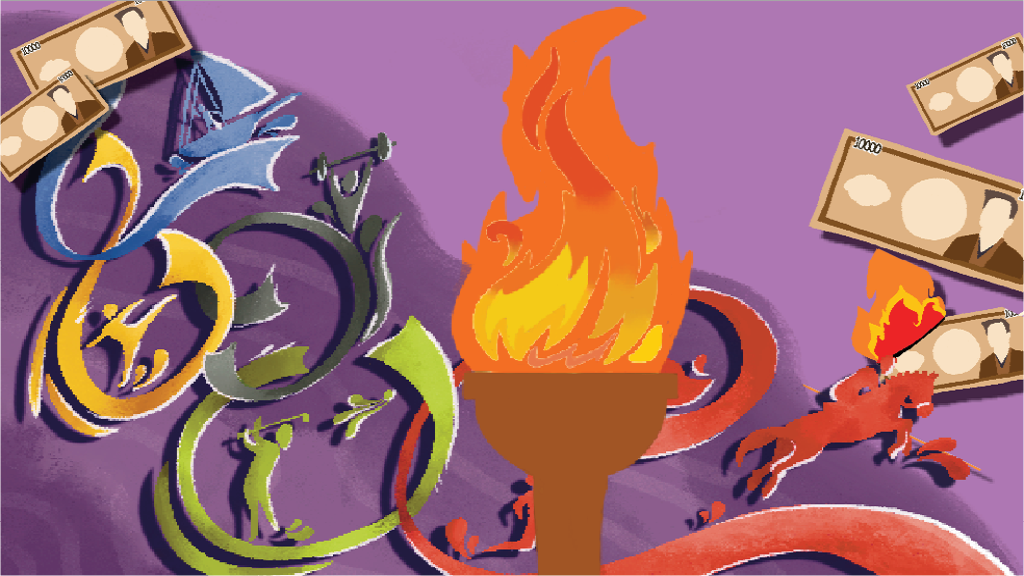2020 was a year to remember.
Frontline medical staff and other essential workers risked their own safety to keep the country running in the midst of a worldwide pandemic.
Crowds took to the streets to protest racial injustice and police brutality, turning a tragic death into a rallying call that would muster one of the largest protests in American history.
By the end of it all, the turnout rate of one of the most contentious presidential elections in American history was the highest it has ever been in more than a century.
A new calendar with a new date hangs in place of the old, but the consequences of the past year are not so easily tossed aside, especially for small business owners.
Bold and Gritty
Dr. David A. Paul is a senior neurosurgery resident at the Strong Memorial Hospital, and the founder and CEO of Bold and Gritty.
“We’re a coffee-focused lifestyle brand,” Paul explained. “We use coffee as a vehicle to tell the stories of people who have really been misrepresented in society, particularly black men.”
“We use coffee as a vehicle to tell the stories of people who have really been misrepresented in society, particularly black men.”
The idea for the business came during the summer of 2020 in the wake of the Black Lives Matter protests sweeping the United States. By fall, Bold and Gritty was already filling coffee orders.
The goal of the project is to challenge society’s view of black men. Bold and Gritty takes members of the community and creates portraits of them, drawing inspiration from the work of artists like Kehinde Wiley and Jean-Michel Basquiat.
“We’ll take everyday guys who have some kind of bold and gritty component about themselves … and if they’ve used their platforms to make a difference in the world, we like to celebrate that,” Paul said.
These artistic representations are a part of Bold and Gritty’s packaging, and these stories make their way into people’s homes alongside the coffee.
Bold and Gritty has big plans for the future, but those plans rest on a small staff.
“We’ve bootstrapped everything. We’re a three-person team: me, my wife and someone who helps us with our social media,” Paul explained.
Dropping into the business world during one of the most tumultuous years of our generation is a trial by fire. COVID-19 has been a prominent feature in our lives this past year, but it was not the only significant event. The death of George Floyd sparked nationwide protests against police brutality and institutional racism.
Rochester was no exception. Daniel Prude was a black man who died of asphyxiation in March of the same year after police pinned him to the ground while restraining him. In September 2020, the incident became public knowledge, and protestors took to the streets. These tragedies spurred Dr. Paul to action.
“Daniel Prude was my cousin, and that was part of the impetus for doing what we’re doing and telling the stories that we tell,” Paul explained.
Local Roots
Businesses live and die by their interactions with the public, but smaller businesses have much closer ties to their communities than Wal-Mart or Target.
“We are very conscious about making sure that the coffee we get gives back to the communities who farm it,” Paul explained. “We’ve been able to develop a unique relationship with our roaster, where we can trace our coffee back to the farms and the washing stations that they come through.”
But not all business relationships are strictly business. Paul and his team have also drawn on support from their family.
“My mom is a professional writer, and she will edit some of our copywriting. We have family who’s involved in digital media and videography, and they’ll help us with some of the marketing content. We’re very much in-house,” he explained.
Spring Cleaning
Clean Qweens is a locally owned cleaning company that services the Rochester area. Its founder, Dominique Bell, started the company back in February 2020, before COVID-19 hit in full force.
“I was driving school buses for some time, and I wanted to do something that would be a long-lasting career. I decided to start a business around something I liked to do, which was cleaning,” Bell explained.
Clean Qweens has serviced homes, daycares, restaurants, offices and other local businesses since the beginning of the pandemic.
“We do residential and commercial cleaning, a wide variety of deep cleanings. Sanitation is really big, a lot of people want all their stuff sanitized because of [COVID-19],” Bell explained.
Nearly 100,000 small businesses that temporarily shut down to weather the pandemic are now closed for good, according to Yelp’s most recent Local Economic Impact Report. Even so, Clean Qweens’s success shows that the past year hasn’t sunk everyone. There are still small businesses that have been able to adapt and ride out the storm.
“[COVID-19] has definitely impacted my business in a positive way. It’s what actually grew my business,” Bell said.
“[COVID-19] has definitely impacted my business in a positive way. It’s what actually grew my business.”
Socially Distant Media
Despite the recent shift to online shopping, the U.S. Department of Commerce estimates that e-commerce only accounted for about 14 percent of total sales in 2020.
Small businesses have had to scramble to pivot online as meetings move to Zoom and consumers migrate over to the omnipresent Amazon, whose shares have soared in response to the pandemic.
Social media has become a powerful tool that small businesses can use to build and interact with their community, even if they aren’t large enough to sustain their own PR department.
Bell does the marketing for Clean Qweens herself. She runs a company website where customers can book appointments, and is very active on social media. Facebook, Instagram, Yelp and other targeted advertising forums are the backbone of many small businesses, and Bell’s is no exception. She also runs her own website, where customers can schedule appointments and bus specialty cleaning products.
Clean Qweens is one of many small businesses who have pivoted to online interactions in the wake of the pandemic.
This kind of digital community building is crucial for small businesses, especially at a time where face-to-face interactions can be hard to come by.
Closing Out
2020 rocked the country, and nobody has escaped from it untouched. The year has been particularly difficult for smaller businesses. Some have died, some have been born and those that survived have been radically changed.
The most important thing customers can do to help is to eschew large chains and shop locally.
Every dollar counts, now more than ever.







